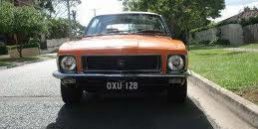Car Loans Brisbane – Sydney, Melbourne, Geelong, Ballarat, Newcastle, Toowoomba, Ipswich – Low Rates from 5.60% (comparison Rate 6.95%) – 1300 633 334.
Car Loans Brisbane and other areas are serviced by our friendly staff. We are located at Chermside or Kedron 9 kilometres north of town.
When choosing a car, you need to consider the costs to run the thing. Now that you have finally decided to buy your new car take a breath and review what the consequences are. Before you make the purchase there are a few things to mull over before you part with your cash. Here are some of the costs you need to consider before buying your next car.
Fuel consumption is a major factor to consider when buying a car. Why? It’s something that affects you directly every day. Your car needs fuel to run, you need money to buy fuell and the car’s fuel consumption affects how often you go to the petrol station to fill it up. Diesel technology is becoming more desirable. The motors are becoming quieter and the turbo power is making for very fuel efficient driving.
Take note, however, that the car’s model would also directly affect fuel consumption so keep it in mind as well. For instance, a hybrid car can cost up to 15 per cent more than its conventional petrol-powered equivalent. Electric models (or even part-electric cars) are even more expensive. Car Loans Brisbane encourage low cost fuel options.
Even the most durable model and make would need spare parts for upkeep. You’d occasionally need new components like spark plugs, windshield wiper blades, brake pads, and oil filters. The cost of parts depends on several factors, but you need to look out for the make and model of the vehicle, and the brand of the car part itself. Check out the cars that now come with fixed low cost servicing.
Spare parts for luxury and performance cars (e.g. BMW, Mercedes Benz), for example, are typically more expensive than mass-market brands (Holden, Ford). Even among mass-produced brands, some parts are simply more expensive than others. Toyota parts, for instance, are typically cheaper than Honda or Nissan components. If you really want to save on costs, choose a make and model with cheaper (and usually more common) spare parts.
Interestingly, car repairs can be considered a separate factor from spare parts, especially for later car models. How? You think you may be saving a great deal by purchasing the latest, cheapest mass-produced model. However, you might spend more if you bring a later model to a mechanic after its warranty ends since not all garages have the appropriate tools to fix it. Shops that are ahead of the pack and are equipped with more modern equipment tend to be more expensive.
You should do research on the car to see if it uses newer technologies that would take a certain amount of expertise and/or newer tools to repair. The vehicle may have a manufacturer’s warranty, but you’d have to spend more for complex repairs when it expires. You may want to pick something not as advanced.
To control your insurance cost, look at things like the car’s ANCAP safety rating, likelihood of theft, car size, and cost of repairs, purchase price, and other factors. For example, a smaller car may be cheaper but its safety rating would be lower, so it’s going to make your premiums more expensive. You’ll have to determine whether you’ll save more in the long run with a slightly costlier car with lower insurance premiums.
Unless you don’t plan on reselling the car, you should look at its resale value when considering what to buy. There are several factors that affect this, including the car’s colour, fuel prices (e.g. SUVs have better value when petrol is cheap), upgrades (extras like sunroofs make vehicles more valuable) and the condition (better maintained cars have better value). There’s a simple rule on car insurance costs: the higher the price of the car, the more expensive the premiums. Since a more expensive car would cost more to repair, the insurance company would naturally spend more in case of a claim—thus the pricier insurance.
Some cars are essentially more reliable than others. This usually depends on the model and manufacturer, so it’s important that you do your research. Don’t forget to look into its warranty and extended coverage (if any). You’ll need them since even durable cars break down. Remember to look at the other add-ons—the ones that aren’t outwardly advertised like the dealer’s mark-up, financing options (e.g. run-on costs financing), and other extras that would affect the purchase price. Ask the dealer about it; you might save a considerable amount of money if you know what’s on the table and what you don’t want.
Car Loans Brisbane have over 25 lenders to ensure you get the right loan.
Car loans can be arranged over the phone – we are based in Brisbane and handle loan enquiries Australia wide.








